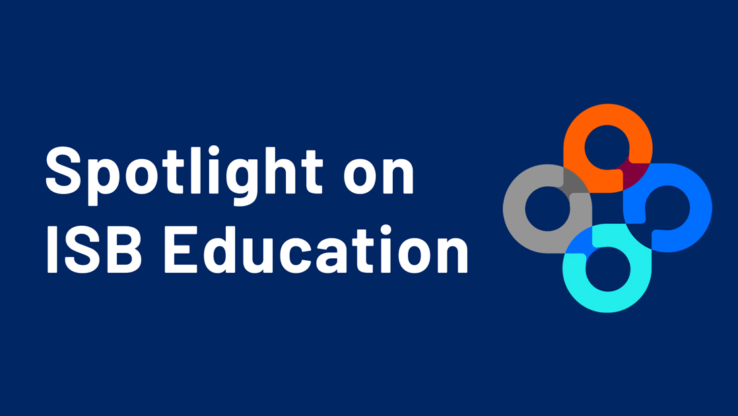David Eagleman and Creating New Senses for Humans
 isbscience.org/news/2020/10/23/david-eagleman-and-creating-new-senses-for-humans/
isbscience.org/news/2020/10/23/david-eagleman-and-creating-new-senses-for-humans/What fascinates neuroscientist Dr. David Eagleman?
“When you look across the animal kingdom, you find flexibility in brains everywhere,” he said. He noted creatures that can perform impressive actions very soon after being born, such as baby zebras that can run around 45 minutes after entering the world.
Humans are not like that. But why?
“Mother Nature discovered a very special trick with humans. Instead of trying to hardwire everything at birth, the simpler and more flexible strategy was allowing neurons to modify themselves based on their experience with the world,” Eagleman said.
“When you think about the human brain, you can’t think about it as hardware or software. It’s what I call ‘liveware.’ It’s the ability of the system to reconfigure itself. It’s not static — it’s constantly plugging and replugging and learning,” he said.
Eagleman — bestselling author, TV personality, CEO of Neosensory, adjunct professor at Stanford, TED speaker, and more — was the featured guest at the ISB-Town Hall Seattle event focusing on brain health. His presentation was titled “Can We Create New Senses for Humans?”
His 30-minute presentation touched on several interesting topics.
Unlike computers, brains are very flexible — and takeover of brain territory is rapid.
In fact, Eagleman believes dreaming is a result of evolution. “Sensory deprivation triggers neighboring territories to take over,” he said. So how does the visual system handle the unfair advantage of darkness, both when the sun goes down (think pre-electricity) and when our eyes are closed? “Dreaming is all about slamming activity into the occipital cortex to keep it defended from takeover across its neighbors,” he said. “Dreams are the love child of brain plasticity and the rotation of the planet.”
The brain wraps around data streams.
Our eyes, nose, ears, tongue, etc., are peripheral plug-and-play devices. “If you feed your brain information in a different way, it will discover how to understand.”
The brain figures out how to control whatever it finds in the body.
“If you lose an arm in a motorcycle accident, your brain will adjust so that your map of the body no longer has an arm.”
Your brain comes to reflect what you do.
“As an adult, if you take up juggling or take up the violin, there are physical changes in the structure of your brain. They’re so obvious that we can look at it in brain imaging and see the changes.”
We can leverage the principles of brain plasticity to build new devices.
“Animals don’t shut down with moderate damage. Neither should our machines.” This, he said, has implications for the biological future of machines.
Following his keynote presentation, Eagleman joined ISB President Dr. Jim Heath for an enlightening Q&A conversation — you can watch it here.
This virtual event is one of several offered this year thanks to a partnership between Town Hall Seattle and ISB. Keynote speakers of our previous 2020 events were Dr. Knatokie Ford (STEM policy and advocacy), Dr. Jennifer Reich (politics of immunization) and Dr. Eric Alm (mining sewage to track population health).






